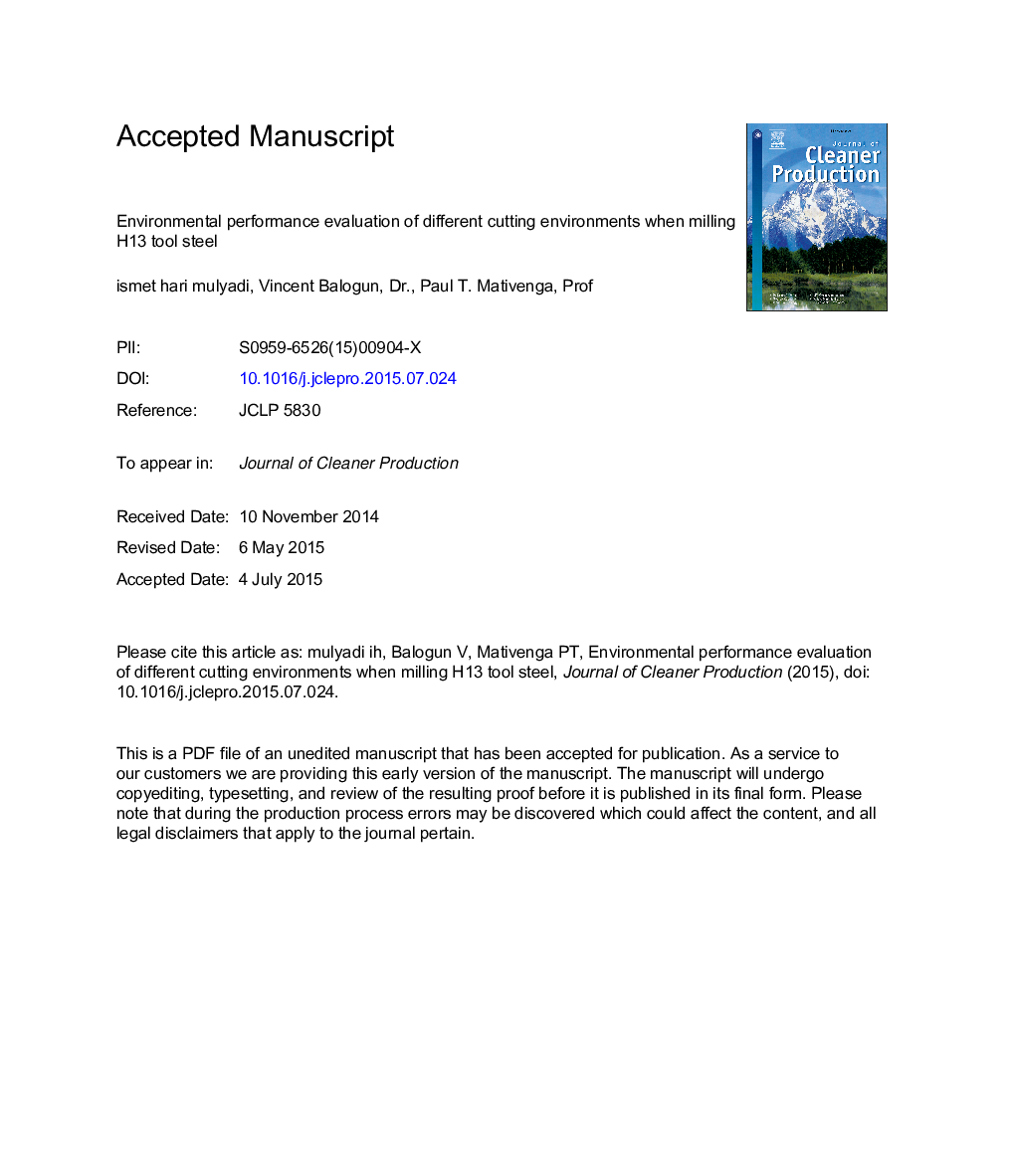| Article ID | Journal | Published Year | Pages | File Type |
|---|---|---|---|---|
| 10688148 | Journal of Cleaner Production | 2015 | 31 Pages |
Abstract
Limited availability of natural resources and the negative environmental burden of industrial processes are driving environmental awareness and resource efficiency improvements in manufacturing. Issues of concern in mechanical machining arise from the significant use of electrical energy and oil-based coolants/lubricants. Process innovation through high speed machining has enabled manufacturing cycle times to be reduced and in some cases promoted dry machining or the use of minimum quantity lubrication. However, the environmental assessment of these innovations has hardly been explored. In this study, the environmental benefits of minimum quantity lubrication environments in machining tool steel at transition speed regime through electrical energy consumption were evaluated and compared to its competitors. The work then assessed the energy using a customized electrical energy model proposed in this study and hence the environmental performance in the process level. Tool life might be of concern in selecting between MQL, dry machining and flood machining, however, this study found that in respect to total energy requirement and environmental benefits, MQL is more promising than flood machining. The work is fundamentally important in assessing the direct energy consumption and the environmental credentials of machining processes.
Related Topics
Physical Sciences and Engineering
Energy
Renewable Energy, Sustainability and the Environment
Authors
Ismet Hari Mulyadi, Vincent Aizebeoje Balogun, Paul T. Mativenga,
